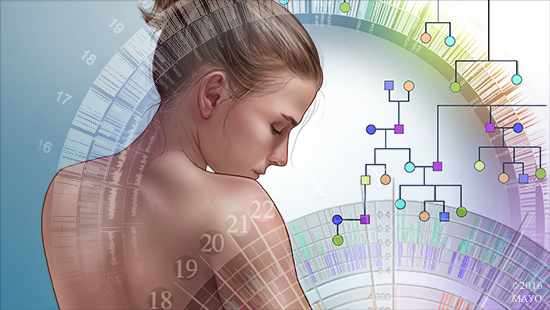Research helps refine role of gene variants in breast cancer risk

Inherited pathogenic variants in protein coding genes BARD1 and RAD51D increase a woman's likelihood of developing breast cancer, according to research conducted at Mayo Clinic and presented today at the 2016 San Antonio Breast Cancer Symposium. Pathogenic variants are changes in DNA that have a negative impact on a gene's ability to function properly.
"The BARD1 and RAD51D genes, have been included in clinical testing panels to determine breast cancer risk," says Fergus Couch, Ph.D., a geneticist at Mayo Clinic and lead author of the study. "However, the genes were identified as 'breast cancer' genes through very small studies, so there has never been strong evidence indicating that they are important in driving breast cancer risk."
Dr. Couch and his colleagues studied data from 65,000 women with breast cancer to obtain risk estimates associated with 21 cancer predisposition genes from testing panels. They found that pathogenic variants in certain genes, such as BARD1 and RAD51D, caused moderately increased risks of breast cancer. These researchers also confirmed the involvement of the ATM, CHEK2 and PALB2 genes in breast cancer. They also found that the RAD50 and MRE11A genes did not increase risks of breast cancer.
"Our findings are important, because genes that do not increase risk of breast cancer can now be ignored and potentially removed from clinical testing panels," Dr. Couch says. "I am hopeful this work will lead to much better interpretation of results from clinical, hereditary [and] genetic testing."




















